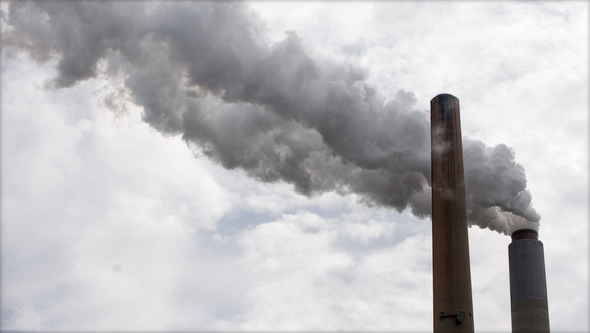Heat does crazy things to people. This past summer, a heat wave in the UK sparked a prison riot in Nottinghamshire where up to 120 inmates went on a rampage and started a fire after refusing to return to their cells. When the heat is turned up in a closed environment, people are naturally going to lash out and explode. With Earth itself being a closed environment, one can only wonder what will happen to humanity if the heat increases to uncomfortable and downright intolerable levels.
Such wondering has taken on greater prominence in the minds of policymakers and scientists alike as relatively recent evidence has shown that humanity’s carbon based economy has released excessive amounts of carbon dioxide into the atmosphere. Immense amounts of atmospheric carbon dioxide has in effect turned the Earth into a greenhouse where heat from the Sun is absorbed by the atmosphere but a limited amount is reflected back into space. As a result this excessive heat will dramatically change climate and weather patterns which in turn will thus cause major political repercussions for the international system.
Already global warming and climate change have been identified as indirect reasons for recent events that have shaken the international political system. Quoting from studies made by Princeton scholar Anne-Marie Slaughter, the Pulitzer Prize winning journalist Thomas L. Friedman has shown how climate change may have indirectly fuelled the Arab Spring. He explains how record-breaking heat waves in wheat producing countries like Canada and Australia led to droughts, which in turn raised global wheat prices as a result of shortages in supply.

With higher prices for one of the most important necessities of life, people in the Arab world took to the streets demanding, in the case of Egypt, “bread, freedom, and social justice.” Furthermore, Friedman has shown that the civil war in Syria is largely the result of droughts, brought on by global warming, which has left the largely Sunni rural population impoverished and in turn embittered by their more urbane and affluent Alawite and Christian counterparts. Thus one can accurately see that global warming is the spark that sets a country’s fractious sectarian relationships on fire.
As global warming is making itself known as a major force in international politics, policymakers in some countries are trying to prepare their nation’s infrastructure and capabilities for the worst. This has been all too true for the world’s preeminent military power, the United States, which has recently sought to adapt its defence capabilities to climate change. In a report titled 2014 Climate Change Adaption Roadmap the US Department of Defence has outlined the initiatives it must take to prepare itself for operations that will be influenced by this detrimental phenomenon.
For instance the report has noted that military planners must alter big picture planning and training procedures by incorporating the impacts of climate change in war games and scenario planning. Furthermore, the report points to how naval and amphibious operations will be affected by the rising global water levels that will result from melting Arctic ice. Finally, the DOD, through this report, has expressed its interest in working with its major suppliers when it comes to preventing climate change from impacting the US military’s supply chain.
The resulting political volatility is evident when climate change touches our daily lives. Thus the world must not only try to limit artificially created climate change but also prepare for its politically destabilizing impacts. Climate scientists and policymakers fear that climate change could directly create an inhospitable world through its ecological impact. However, in a world that is fractured and on the edge of full-blown political volatility, it may be the indirect political ramifications of climate change, rather than its direct influences on the global ecosystem, that will have the final say on the continuity of human existence.




